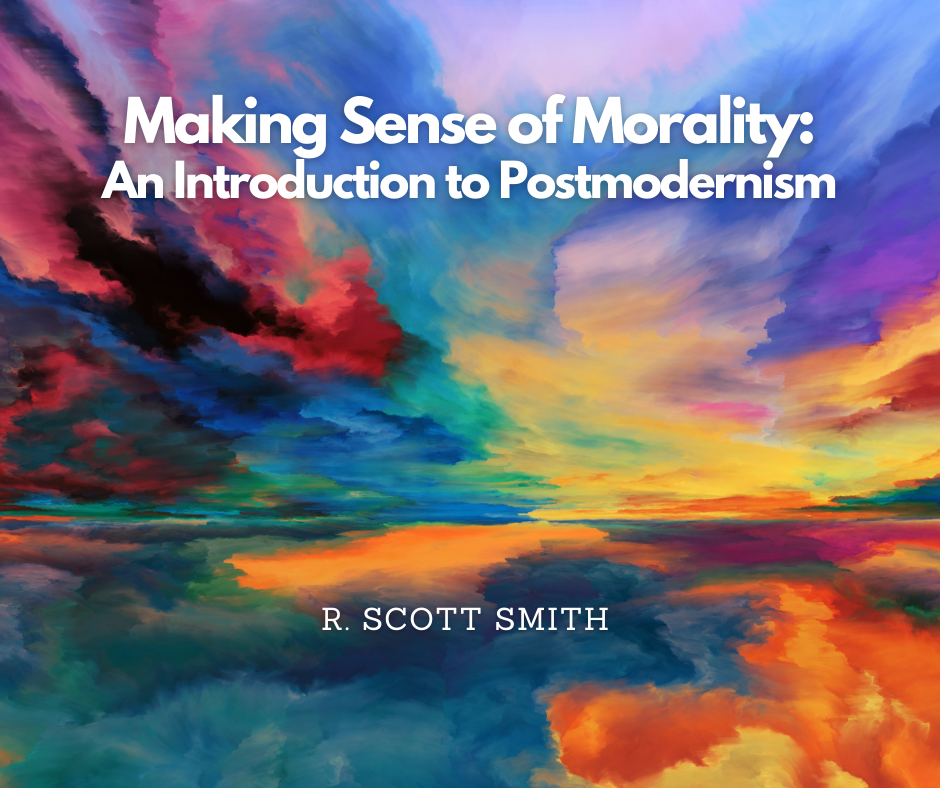Making Sense of Morality: A Brief Assessment of MacIntyre’s Ethics
/Editor’s note: R. Scott Smith has graciously allowed us to republish his series, “Making Sense of Morality.” You can find the original post here.
Some Contributions
What should we make of MacIntyre’s proposals? His ethics focuses on the importance of good character by embodying moral virtues and being authentic. He also draws attention to the importance of community. And, he emphasizes the need for living out the virtues, and not merely engaging in abstract theorizing.
Broad Concerns
As we have seen, MacIntyre and other authors writing in the light of the postmodern turn embrace nominalism. Yet, we have seen its disastrous effects, leaving us without any qualities whatsoever. So, there are no people, no morals (not even our core ones), no world, etc. But surely this is false, and it destroys morality.
We also have surveyed issues with historicism, which ends up with no way to start making interpretations. Yet, are we really so situated that we cannot access reality directly? Now, surely no human is blind to nothing, and we cannot know something exhaustively. Surely we have our biases, too.
Yet, from daily life, it seems we can notice that we do access reality. For example, how do children learn to form concepts of apples? It seems it is by having many experiences of them. Then they can notice their commonalities, and they can form a concept on that basis. Then they can use that concept to compare something else they see (e.g., a tomato) and notice if it too is an apple or not. Adults do this, too, when they use phones to refill prescriptions, or enter their “PIN” for a debit card purchase.
It seems to be a descriptive fact that we can compare our concepts with things as they are, just as in that apple example. We also can adjust our concepts to better fit with reality. I think we can know this to be so, if we pay close attention to what is consciously before our minds.
However, how we attend to what we are aware of can reflect patterns. We can fall into ruts, noticing some things while not attending to others. As J. P. Moreland suggests, “situatedness functions as a set of habit forming background beliefs and concepts that direct our acts of noticing or failing to notice various features of reality” (Moreland, 311). But these habits do not preclude us from accessing reality.
Specific Concerns
Now, MacIntyre rejects the soul as the basis for one’s being the same person through change. For one, it would be an essence, and he seems to think humans are just bodies (Dependent Rational Animals, 6). Can the unity of one’s narrative meet this need?
For him, a narrative does not have an essence; it is composed of sentences that tell a person’s story. At any time, the narrative’s identity just is the bundle of sentences that are its members. However, if a new sentence is added, then the set of members has changed, and a new story has taken the old one’s place. Sadly, then, someone cannot grow in virtue or rationality on this view, for they do not maintain their identity through change.
Moreover, can we really see that one tradition is rationally superior to another? MacIntyre in banking on our ability to become bilingual. However, on his view, a person at any time is constituted by his or her narrative, and that in turn cannot be pried off from the tradition on which it is based. When a person immerses him or herself into another tradition to learn its language, that learning always will be done from the interpretive standpoint of the first tradition, by which that person has been formed. Indeed, it could not be otherwise, since that person is narratively “constituted” by the first tradition’s conceptual/linguistic framework. But, as that person “learns” that second language, new sentences should be added to that person’s narrative. Yet, if so, that person no longer is the same! So it becomes impossible to see the rational superiority of another tradition on his own views.
For Further Reading
Alasdair MacIntyre, After Virtue, 3rd ed.; Dependent Rational Animals; and Whose Justice? Which Rationality?
J. P. Moreland, “Two Areas of Reflection and Dialogue with John Franke,” Philosophia Christi 8:2 (2006)
R. Scott Smith, In Search of Moral Knowledge, ch. 11
R. Scott Smith is a Christian philosopher and apologist, with special interests in ethics, knowledge, and seeing the body of Christ live in the fullness of the Spirit and truth.




















